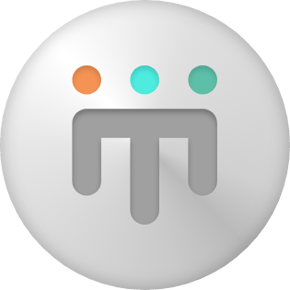Have you noticed more candidates are applying for posted jobs?
It’s reported that about one in every two candidates use ChatGPT to write cover letters and craft resumes. At least for now, they’re coming out clunky, and it’s easy enough to spot, but how long will it be until generative AI outsmarts you?

Why? How?
The job market in Australia is becoming exceedingly competitive, and more people are job-hunting after being made redundant, so HR managers need to fill fewer vacancies.
Coupled with the rise of online job boards and the use of LinkedIn as a job search tool, has meant that there is a larger pool of potential candidates, making applying for jobs online pretty easy.
For example, LinkedIn ranks “Easy Apply" advertised roles on the job board higher than those advertised " Apply" because the platform benefits from more people searching for jobs. This has resulted in potential employees flooding the market with low quality job applications.
Anyway. HR teams and managers aren’t buying resumes riddled with AI.
.webp?width=480&height=480&name=giphy%20(16).webp)
But you can’t have it both ways. Because so many HR teams use AI to sift through applications themselves. Not to mention so many applicant tracking systems are powered by AI and chatbots themselves.
Are we okay with robots doing the heavy lifting on our side but expect applicants to stick with the "old-fashioned" methods?
What’s the problem?
Let’s be real—AI isn’t going anywhere.

And while it’s tempting to reject AI-generated resumes, we need to rethink how we approach this problem. But here’s the kicker: HR teams use traditional AI, not generative AI.
The AI we use improves efficiency and sifts through resumes, scanning for keywords and sorting applicants. It doesn’t write resumes—it just processes them. However, candidates using generative AI, like ChatGPT, to craft their applications are skipping the work. So, there’s a clear difference between using AI to sort versus using AI to create.
So instead of just tossing out applications, maybe we should shift the focus to the substance behind them. The other problem with potential candidates relying too heavily on ChatGPT is they can “catfish” you.
.webp?width=480&height=270&name=giphy%20(17).webp)
Catfishing occurs when employees overstate their abilities and skills and lie about their employment history. The problem with catfishing is that HR teams waste time onboarding employees who can’t deliver on their promises.
The best applications are personal. Because the best employees are people, it’s okay for candidates and employees to use ChatGPT to review spelling and grammar, but using it to sanitise a resume is taking a step too far.
So what’s the best way HR teams can turn the tap off on generative AI resumes and catfishing?
Strategies to mitigate AI resumes
Focus on skills-based assessments
Resumes can only tell you so much. To understand if a candidate can deliver, you need to test their skills.

Incorporating practical assessments or skills-based tests into your hiring process helps you evaluate a candidate’s real-world abilities rather than relying solely on their resume-writing skills.
Whether it’s coding tasks, writing samples, or job simulations, these assessments give candidates the chance to prove they can do the work. It also cuts through the noise of AI-generated resumes that might look perfect on paper but don’t translate to real capabilities.
In a world where fauxductivity is already a problem, the last thing you need is to hire someone who’s faking their way through the application process.
References
You can’t fake human connections. That’s why references and recommendations from past employers or colleagues should play a bigger role in your hiring process.
.webp?width=338&height=259&name=giphy%20(18).webp)
By asking candidates for these early on, you can cut through AI resumes and get a clearer sense of the candidate. Genuine feedback from people who have actually worked with the candidate helps you understand their work ethic, character, and abilities in a way that no AI resume ever could.
Behavioural questions
ChatGPT isn’t very good at simulating human experiences. So in your application stage, ask candidates to discuss real-life situations, how they approach problem-solving, and how they apply their skills in challenging scenarios.
ChatGPT can generate buzzwords and key phrases that pass through traditional resume screenings, but it can’t fake a candidate’s real-world experiences or responses. These interviews reveal a candidate’s thought process, adaptability, and emotional intelligence—skills that can’t be fully captured in a resume, AI or not.

